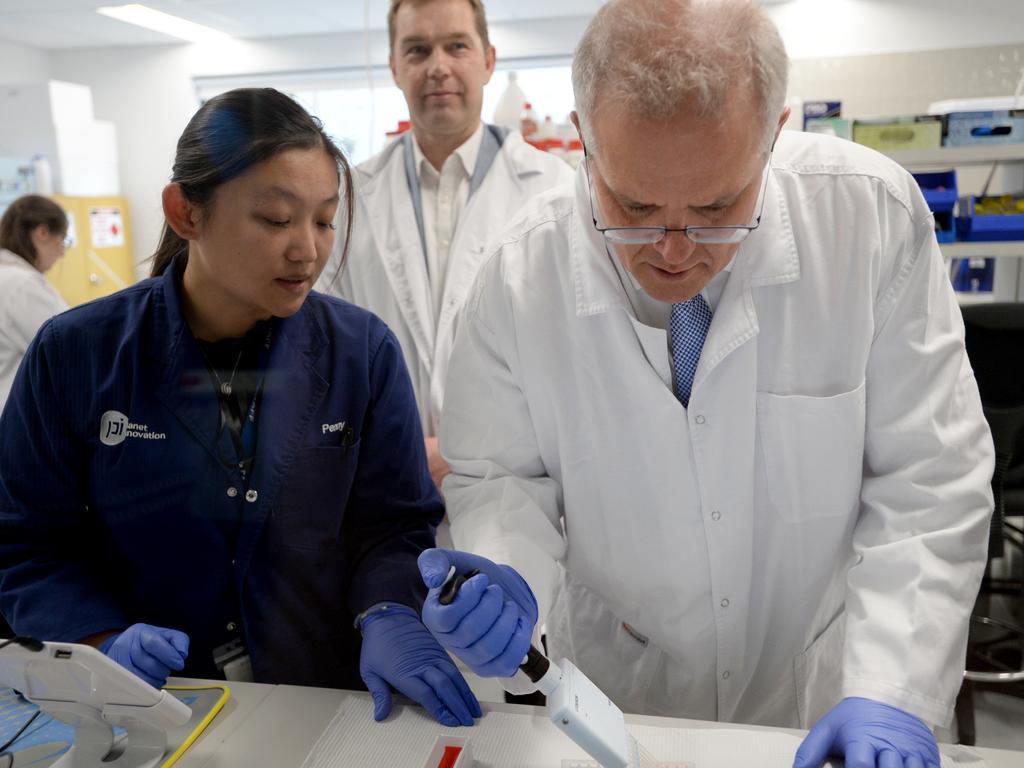Unsure about the vaccine? Check your privilege


In poorer countries where money is the primary determinant of healthcare, the vaccine is a lifeline, but few can get access to it. By contrast, many Australians are rejecting the vaccine by choice and women are leading the march of the privileged.
In the developing world, people are desperate for vaccines. The Covid reaper is cutting a swathe across India and Brazil, and rebounding in Europe. In Brazil, the death toll includes hundreds of children under the age of five. In India, young mothers are falling ill and Covid orphans are filling the streets. These women and children do not have the luxury of a Covid vaccine and they are dying for want of it.
Meanwhile, in the West, millions are refusing to be vaccinated. There are the anti-vaxxers who blame vaccines for a host of modern ailments when science demonstrates causation lies elsewhere. There are the anti-government conspiracy theorists who believe public health is a grand ruse to render the masses infertile. There is the apocalypse now crowd that reads Revelation like a manual for modern living and thinks the Covid vaccine is the mark of the Beast. Then there are the homegrown hippies whose default pandemic position is denial; they reckon duelling with Covid is elementary compared with the evil that lurks behind the needle. What these groups share is gross selfishness, embarrassing insularity and an utter disregard for the world beyond their navels.
Surveys indicate about a third of Australians express reluctance to be vaccinated against Covid. It is disturbing to watch newsreels of people dying from the viral pandemic while 1.5 million doses of vaccine go unused Down Under.
A study in the European Journal of Epidemiology found Australian women among the least likely to indicate they would receive the Covid vaccine. Researchers Malia Skjefte et al conducted an online survey in late 2020, which was completed by 17,871 women from 16 countries. They found that given a 90 per cent Covid-19 vaccine efficacy, 52 per cent of pregnant women and 73.4 per cent of non-pregnant women would accept it.
While the Covid-19 vaccine acceptance level was above 90 per cent for non-pregnant mothers in India, Brazil and Mexico, it was below 56 per cent for Australia, the US and Russia. Similarly, the proportion of respondents who indicated an intention to vaccinate their children was above 85 per cent in India, Mexico, Brazil and Colombia and below 52 per cent in Australia, the US and Russia. The results persisted after standardising for age, education and income.

The reasons women are more reluctant to accept the vaccine differs by country. However, when asked “How worried are you about Covid-19?”, Australian women were the least concerned. The low incidence of the virus in Australia is one reason women feel safe to reject the vaccine. However, surveys in the US, Europe and Australia have also found an association between social media use and Covid vaccine reluctance.
Central Queensland University research professor Corneel Vandelanotte spoke to the ABC about his research that found “willingness to vaccinate” was lower among women, people with a certificate or diploma compared with a bachelor’s degree, and those who were not regular users of traditional media.
A recent study by EU agency Eurofound revealed “the main influence on vaccine hesitancy was the time spent on social media, as well as the nature of the medium used. The proportion of people unlikely to take the vaccine rises to 40 per cent among those who use social media as their primary source of news”.
Social media is a conduit for rubbish of all kinds. It amplifies conspiracies and simplifies complexity to the point of uselessness. So it was that some business owners came to believe Covid vaccine recipients were shedding live virus and subsequently declared them verboten.
In the age of disinformation, a hairdresser cum “blood witch” posted a message on social media informing Covid vaccine recipients they would not be serviced in her salon. The Queensland Times reported on Yazmina Jade Adler’s belief that the vaccine caused thousands of side-effects and “just by me being around you (people who have received the Covid-19 vaccine) … I could get this disease”.
The curly hair specialist who paints her face with menstrual blood to soothe cramps seems to believe that Covid vaccine recipients shed live virus. But neither AstraZeneca nor Pfizer use live attenuated vaccines for Covid. Fake news poses a greater risk of contagion. Take it from someone whose fiance has had the shot — my worst symptom was vaccine envy.
The advanced technologies used in Covid vaccines have prompted reasoned debate about efficacy and safety. However, there is a persistent group that refuses to consider the benefits of being vaccinated against the well-documented risks of contracting the coronavirus. In an earlier time, nature would have heeded the call of people running to escape the clutches of the Covid vaccine.
Look to developing countries to see how kind Mother Nature is to her charges. Advanced technology and liberal democracy developed in tandem to provide a more compassionate alternative to natural selection. Take it.







Vaccine hesitancy is a First World privilege. It is more common in developed nations where mistrust in government, or low incidence combined with the safety net of publicly funded healthcare, have led people to risk contracting Covid rather than receiving the vaccine.